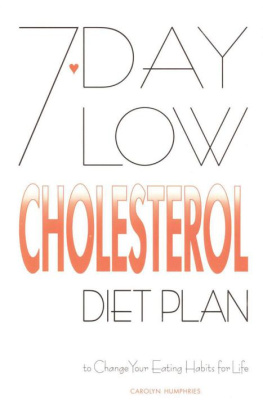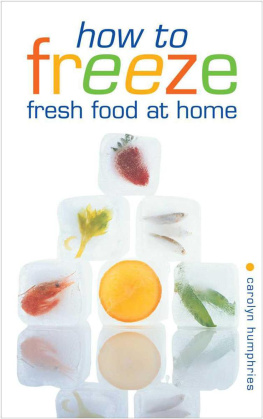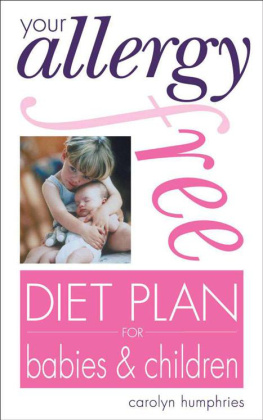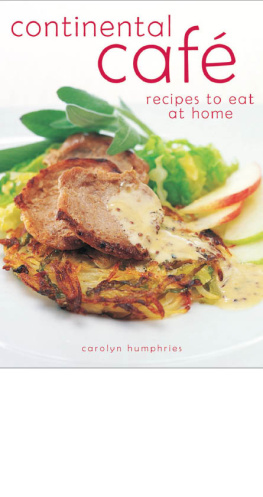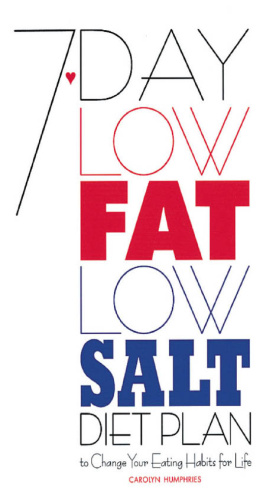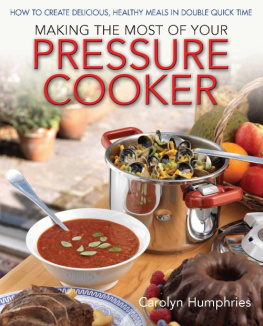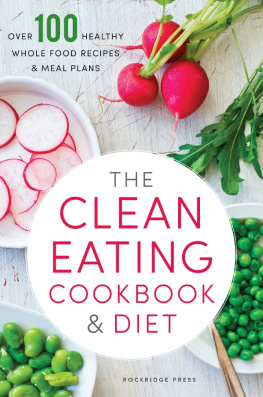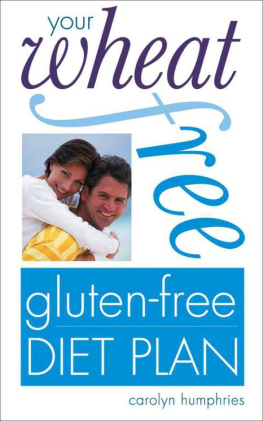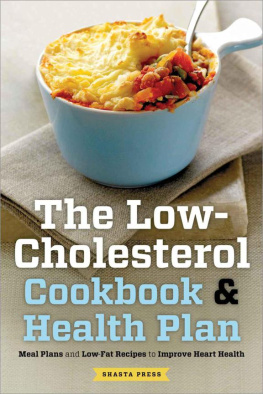Copyright
First published in Great Britain in 1999 by W. Foulsham & Co. Ltd
Copyright 1999 W. Foulsham & Co. Ltd
A CIP record for this book is available from the British Library
The moral right of the author has been asserted
All rights reserved
Epub ISBN 9780572040253 Kindle ISBN 9780572040246 Book ISBN 9780572025090
The Copyright Act prohibits (subject to certain very limited exceptions) the making of copies of any copyright work or of a substantial part of such a work, including the making of copies by photocopying or similar process. Written permission to make a copy or copies must therefore normally be obtained from the publisher in advance.
It is advisable also to consult the publisher if in any doubt as to the legality of any copyright which is to be undertaken.
Neither the editors of W. Foulsham & Co. Limited nor the author or the publisher take responsibility for any possible consequences from any treatment, procedure, test, exercise, action, or application of medication or preparation by any person reading or following the information in this book. The publication of this book does not constitute the practice of medicine, and this book does not attempt to replace your doctor.
W.
W.
Foulsham & Co. Ltd Capital Point, 33 Bath Road Slough, Berkshire SL1 3UF, England www.foulsham.com
Table of Contents
Introduction
If youve had your blood cholesterol level tested and been told that it is too high, you will need to make changes to your eating habits. That doesnt mean going on a starvation diet, it means eating more foods that will actively help reduce the amount of cholesterol in your blood, and limiting those that increase it. This book will explain how and why in the simplest way possible. Its not cranky and its packed with delicious, nutritious recipes.
What is Cholesterol? Cholesterol is a naturally occurring, soft, waxy substance, made by the liver, not just in humans but in all animals.
It is essential for life. It is a component of every cell in the body. It is vital for the functioning of the central nervous system as well as being used to make vitamin D and to make bile to process fatty foods. How can you have too much? Research now shows that if we eat a large proportion of saturated fat the liver uses it to make an excess of cholesterol. So, it is important to reduce your saturated fat intake if you wish to to reduce your blood cholesterol level. There are also a few foods that contain a particularly high proportion of cholesterol.
These are egg yolks, prawns (shrimp), offal (kidneys, liver, etc.) and fish roes. There is some controversy as to what effect these have on blood cholesterol levels but it is recommended that egg yolks be limited to a maximum of three a week, including those used in cooking. In this book, youll find egg whites are often used instead of whole eggs. I have avoided the other very high cholesterol foods too as they are not essential for a healthy diet. However, eating them occasionally should not affect your blood cholesterol level in the long term. What happens if you have excess cholesterol in your blood? Well, youve heard of plaque on your teeth that, if allowed to build up, causes gum disease.
Too much cholesterol causes a similar sort of silting-up in the small arteries which supply your heart with blood. If not kept in check, it can block the arteries, so preventing proper flow to the heart and increasing the risk of coronary heart disease. The different types of fat Fat not only makes other food more palatable, it is also an essential part of a healthy, balanced diet. It provides warmth and energy and ensures our immune system and muscles work properly. It keeps our skin soft and supple too. We need a certain amount to allow our bodies to absorb the fat-soluble vitamins A, D, E and K, and to provide essential fatty acids.
The problem is, most people eat too much especially saturated fats (see below). Fat naturally occurs in most foods, but particularly in milk, cheese, meat, fish, eggs, grains, nuts and seeds, so we dont need to add more by spreading butter thickly on bread, dabbing it all over cooked vegetables before we eat them or pouring lashings of cream on our puds. Are all fats the same? When you think of fat, you probably think only of the white stuff round meat and slabs of butter, margarine and lard (shortening). But vegetable oils like corn, olive or sunflower are also fats, as are fish oils such as cod liver oil. They can, however, be divided into three main groups: Saturated fats are mostly animal fats and solidify at room temperature. They are found in largest quantities in meat, dairy products and many margarines.
Most plant products are low in saturated fats. The exceptions are hydrogenised vegetable oils and palm and coconut oil which are all from plants; they, too, solidify at room temperature and are high in saturated fat. Everyone is advised to cut down on saturated fats and if you have a high blood cholesterol level, you must reduce the amount in your diet or you may risk coronary heart disease. Polyunsaturated fats come in two types: omega 6 fatty acids, mainly found in vegetable and seed oils and in polyunsaturated margarines. These can help lower your blood cholesterol level but should only be used in moderation. The other type, omega 3 fatty acids, are found mainly in oily fish such as mackerel and tuna, and are thought to help protect against heart disease.
Monounsaturated fats are found in highest quantities in olive oil, avocados and rapeseed oil. They are not thought to have any effect on blood cholesterol levels. In Mediterranean countries where they have a high consumption of olive oil, there is a relatively low incidence of coronary heart disease. But obesity is a common problem in later life, so the message is to consume only small quantities. Which fats should you choose? All the above fats have the same number of calories and so are equally fattening. Controversy still rages over the virtues of polyunsaturated versus monounsaturated fats.
To reduce your blood cholesterol level, I recommend having very little saturated fat and a balance between polyunsaturated and monounsaturated fats; but, remember, you should not be having very much of any of them! Dairy Products Dairy products contain many things that are good for us: they are high in protein, and provide vitamins and minerals such as calcium for strong bones and teeth. Its their saturated fat content that you dont need, which is why you should stick to skimmed milk and the lowest-fat cheeses, yoghurts and creams you can find. A word of warning about cream substitutes: I noticed, purely by accident, that one of the cream substitutes made with a mixture of vegetable fats and buttermilk had a higher saturated fat content than the reduced-fat real cream. So, as I cant stress too often, it is worth reading labels and comparing the nutritional information on the different brands which will tell you how much saturated, polyunsaturated and monounsaturated fat they each contain. Remember, too, that cream of any kind, even the reduced-fat type, should be eaten as a treat only. Ways to help reduce blood cholesterol levels These are all healthy eating suggestions remember, taking regular exercise is also important.
- Change to polyunsaturated and monounsaturated fats and reduce the amount you eat overall.

